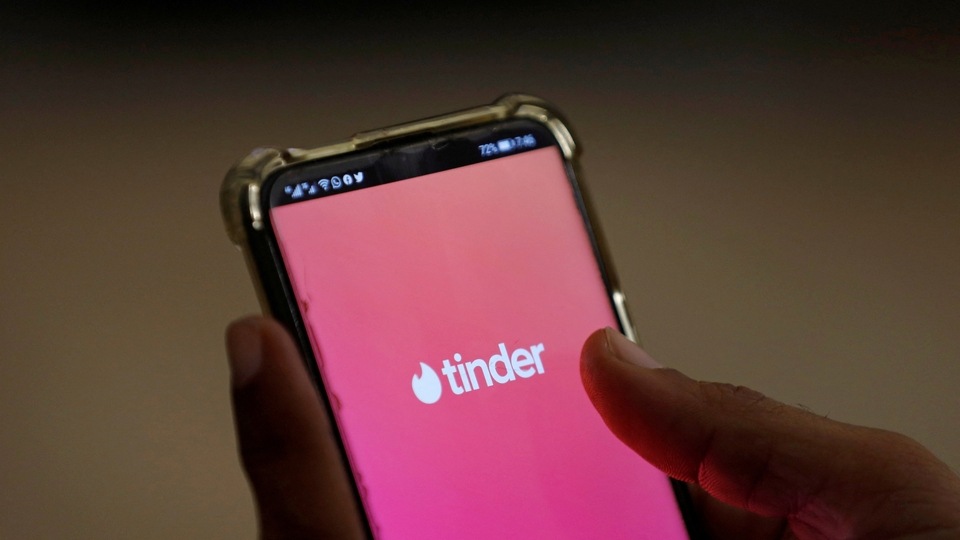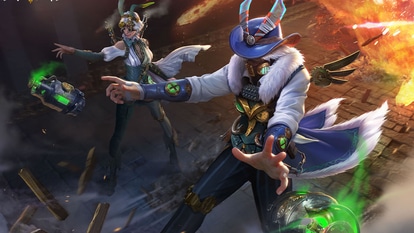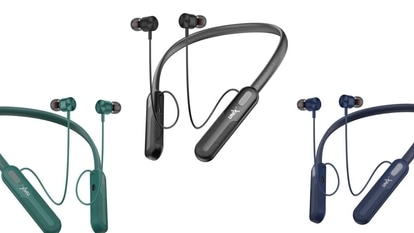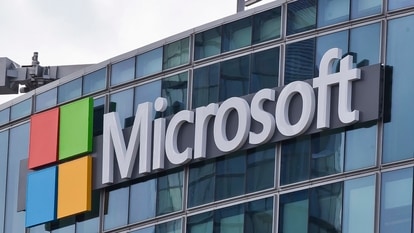“Online dating is a killer." How Much Would You Pay to Find a Partner?
The first story in a new series on the data behind dating delves into the dating app paradox — and why some people would rather spend than swipe.

Would like to meet: Man who is tall, dark, handsome, has a good sense of humor and a well-paid job in professional services.
Young, single, ambitious professionals working in the City of London are flooding matchmaker Siobhan Copland's inbox with such requests. They've spent their 20s graduating from highly competitive universities and pushing themselves through punishing late nights in the office. By their 30s, many have built impressive careers, yet something is missing from their lives: love. But having soured on endlessly swiping through Hinge, Bumble and Tinder, these men and women have become fussier than previous generations about choosing a partner to share the years with.
The clients who show up at Copland's agency, Cupid in the City, present her with stringent criteria: As well as looks and personality, finding someone who is just as ambitious is very important, particularly for women.
“They've worked hard to get to a position in their career, so their standard gets higher,” said Copland. And clients are willing to put their money where their mouth is: One offered her a £25,000 bonus if she found him a wife.
The Dating App Paradox
Of course not everyone is paying such sums to get an introduction, as over the past quarter-century, dating apps have exploded, entirely changing how romance works.
When one of the first online dating sites, Match.com, launched in 1995, the closest equivalent to the Internet matchmaking we have now was classified ads in newspapers. As dating sites spread through the nineties and aughts, and then the first dating apps like Grindr in 2009, it became increasingly acceptable to meet someone through an online profile. As of 2022, more people have met their current partner online than via mutual friends, according to YouGov.
Apps provide access to a much wider pool of potential matches, with a user able to consider hundreds of potential dates in an evening of swiping, an almost unimaginable number compared with the numbers you could meet during a night at the pub, or at a friend's party.
With courtship now streamlined, it should be easier and faster than ever to find “The One”. But this appears not to be the case: the number of options can be overwhelming, said Mairead Molloy, a relationship psychologist and director at matchmaking service Berkeley International.
“Online dating is a killer,” she said. “The advantage is it's quick, and people do meet people, but there's no vetting… the sifting that you have to do — it's terrible.”
Sifting for potential matches is tiring, but so is the feeling of being sifted. “I go through phases of deleting all the apps altogether because it's tiring and demoralizing,” said one 29-year-old woman, who spoke on condition of not being identified. “Strangers are much harsher with rejections than anyone you'd meet in real life. ”
Some math offers a little perspective. A 33-year-old professional, who was granted anonymity to speak freely, said he notices a clear ratio when using dating apps. For every 100 people he matches with, 10 might turn into a date. But just one of these will go well enough to evolve into a relationship, potentially.
“I have 400 matches across the apps and I've been in relationships with four of them,” he said. “I think it's liberating in a sense — you can be in a room with 100 people and one could be your wife or husband. It's better to do it that way rather than in the old days where there was three people in the village roughly your age and one has to be your partner.”
Intriguingly, matchmaker Copland operates with a not-too-dissimilar ratio: More than 350 couples have emerged from the roughly 5,000 first dates she has set up.
Molloy said that she sees clients as young as 22 who are willing to pay thousands of pounds for matchmaking services to avoid the time-cost of wading through this ratio. Work pressures sapping people of the energy needed to look through apps drive clients to her too, she said: “We have a lot of people who work for Twitter on our books, and they're all exhausted with the work load.”
The problems of dating via apps have created an industry of coaches and guides promising to help. You can employ people to critique your profile, write messages on your behalf like a modern-day Cyrano, and help you to “manifest” your ideal partner.
The Societal Changes Shaping Dating
Perhaps now is the moment to take a step back and see how we arrived at this current state of err, affairs.
To start, there have clearly been huge changes in women's roles in society. In 1973, 54.6% of women aged 16-64 were employed in the UK, according to the Office for National Statistics (ONS). The percentage was 71.9% in 2019.
Women were also underrepresented in higher education, and even barred from entering most colleges at the University of Oxford, for example. Today, women outnumber men at university in the UK and many other western countries, figures show.
Perhaps unsurprisingly, these changes have had major consequences on how people get together, maybe stay together, or don't.
“Women, because they have this independent income, they are freer than they were in the past to reject matches that are not to their liking,” said Dr Tomáš Cvrcek, an associate professor in economics at UCL, where he studies the effects of demographic changes. “The bar for men has increased as a consequence of all this.”
With singledom now a financial possibility for more women, many wait longer before settling down: one of several factors leading to straight couples getting married later.
The opposite-sex marriage rate in 2019 was the lowest since 1862, according to ONS figures. The average age to get married was 34.3 for men and 32.3 for women. For same-sex relationships it was higher still — 38.1 for men and 33.8 for women.
“We talk about the single premium, I can afford that,” said a woman in her 30s who works in financial services, who asked not to be named. “But if you don't have a good job and you are financially reliant on a partner you are going to stay in a relationship even if it's not right. I've got the privilege of being able to walk away.”
It's a Numbers Game
It might seem crude to speak about romance in the same breath as statistics, but it's true that love can at least partly be understood using numbers. Beneath the swoons and the heartbreaks, they can help us understand how we find love — and why sometimes we don't.
Throughout this series we will be analyzing today's dating scene in London using numbers to help tell the story: From how much money you might spend on dates before you find The One, to the perfect age to settle down. And we will also be looking at dating as a market, considering the effects of supply and demand, and how competition can affect your possible outcomes.
It's dating, by numbers.
Catch all the Latest Tech News, Mobile News, Laptop News, Gaming news, Wearables News , How To News, also keep up with us on Whatsapp channel,Twitter, Facebook, Google News, and Instagram. For our latest videos, subscribe to our YouTube channel.


























